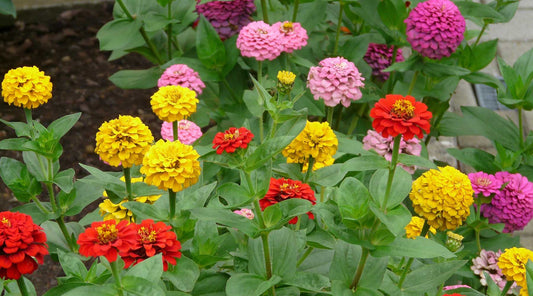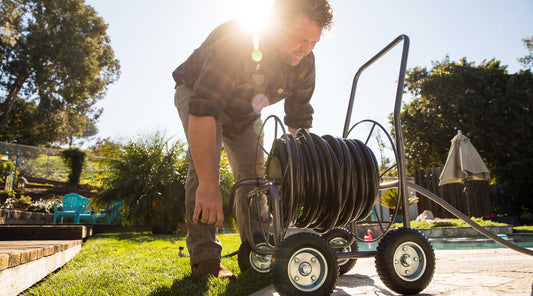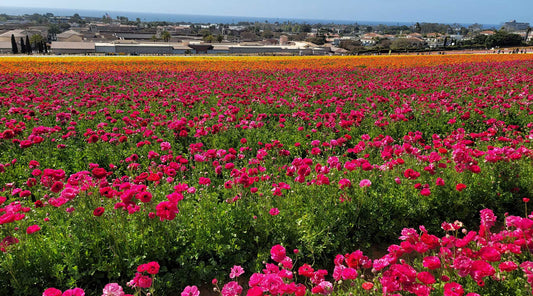Summer is the perfect time to indulge in the fresh, vibrant flavors of home-grown herbs. Whether you're a seasoned gardener or just starting out, creating an herb garden can bring a touch of magic to your summer dishes and drinks. Let’s dive into how you can grow your own herb garden to capture those peak summer flavors.
Choosing the Right Herbs for Summer
When selecting herbs for your summer garden, it’s essential to pick those that thrive in the heat and sun. Certain herbs are naturally suited for warmer climates and can provide an abundance of flavor with minimal effort. Here are some top choices:
- Basil: A staple in many kitchens, basil loves the sun and adds a fresh, peppery flavor to dishes.
- Rosemary: This hardy herb withstands heat well and offers a robust, piney taste.
- Mint: Perfect for refreshing summer drinks, mint grows vigorously and can spread quickly.
- Thyme: With its earthy and slightly lemony flavor, thyme is a versatile herb that pairs well with many dishes.
- Oregano: Known for its strong, aromatic flavor, oregano is ideal for Mediterranean cuisine.
- Dill: This feathery herb adds a tangy, slightly sweet flavor to salads and pickles.
These herbs are not only flavorful but also resilient, making them perfect for summer gardening.
Preparing Your Herb Garden
Before you start planting, it’s crucial to prepare your garden space to ensure your herbs thrive. Here are some tips to get you started:
- Choose the right location: Most herbs need at least six hours of sunlight each day. Find a sunny spot in your garden or on your balcony.
- Soil preparation: Herbs prefer well-draining soil. If you’re using garden soil, mix in some compost or organic matter to improve drainage and provide nutrients.
- Container gardening: If you’re short on space, herbs grow well in containers. Use pots with drainage holes and fill them with high-quality potting mix.
By setting up your garden space correctly, you’ll give your herbs the best chance to flourish. Be sure to check on your hand gardening tools to make sure they're in good condition and of course if you need new tools, check out the Terra Tuff hand garden tools here.
Planting and Caring for Your Summer Herbs
Now that your garden is ready, it’s time to plant your herbs. Follow these guidelines to ensure healthy growth:
- Planting: Space your herbs according to their needs. For example, basil plants should be about 12-18 inches apart, while thyme can be planted closer together.
- Watering: Herbs need consistent moisture, especially in the summer heat. Water them in the morning to reduce evaporation and avoid wetting the leaves, which can lead to disease.
- Feeding: Use a balanced, organic fertilizer every few weeks to keep your herbs nourished. Be careful not to over-fertilize, as this can lead to excessive leaf growth and reduced flavor.
- Sunlight: Ensure your herbs receive plenty of sunlight. If you’re growing herbs indoors, consider using a grow light to supplement natural light.
Proper care will result in a bountiful harvest of flavorful herbs all summer long.
Maximizing Flavor: Harvesting and Using Fresh Herbs
The best part of growing herbs is enjoying their fresh flavors. Here’s how to harvest and use them for maximum impact:
- Harvesting: Pick herbs in the morning when their essential oils are most concentrated. Use sharp scissors or pruning shears to avoid damaging the plants.
- Using fresh herbs: Incorporate fresh herbs into your cooking for a burst of flavor. Add basil to salads and pasta, use rosemary in marinades, and garnish drinks with mint.
- Creative recipes: Try making herb-infused oils, pestos, and flavored butters. Fresh herbs can also elevate simple dishes like grilled vegetables or roasted meats.
By harvesting regularly and using your herbs creatively, you’ll make the most of your summer garden.
Troubleshooting Common Herb Garden Problems
Even experienced gardeners encounter issues. Here are some common problems and how to solve them:
- Pests: Aphids, spider mites, and whiteflies can be problematic. Use natural insecticidal soap or introduce beneficial insects like ladybugs.
- Diseases: Fungal diseases can occur, especially if the leaves stay wet. Ensure good air circulation and water at the base of the plants.
- Overwatering: Herbs dislike soggy soil. Ensure proper drainage and water only when the top inch of soil feels dry.
Regular monitoring and prompt action will keep your herb garden healthy and productive.
Companion Planting: Herbs and Vegetables
Companion planting can enhance your garden’s health and yield. Here are some beneficial pairings:
- Basil and tomatoes: Basil can improve the flavor of tomatoes and repel pests like aphids and tomato hornworms.
- Rosemary and beans: Rosemary’s strong scent deters bean beetles and other pests.
- Mint and cabbage: Mint repels cabbage moths and other insects that target cabbage family plants.
By planting herbs alongside vegetables, you can create a harmonious and productive garden.
Conclusion
Growing an herb garden in the summer is a rewarding experience that brings fresh flavors to your table. With the right herbs, preparation, and care, you can enjoy a bountiful harvest all season long. So why wait? Start planting your summer herb garden today and savor the vibrant tastes of the season!









